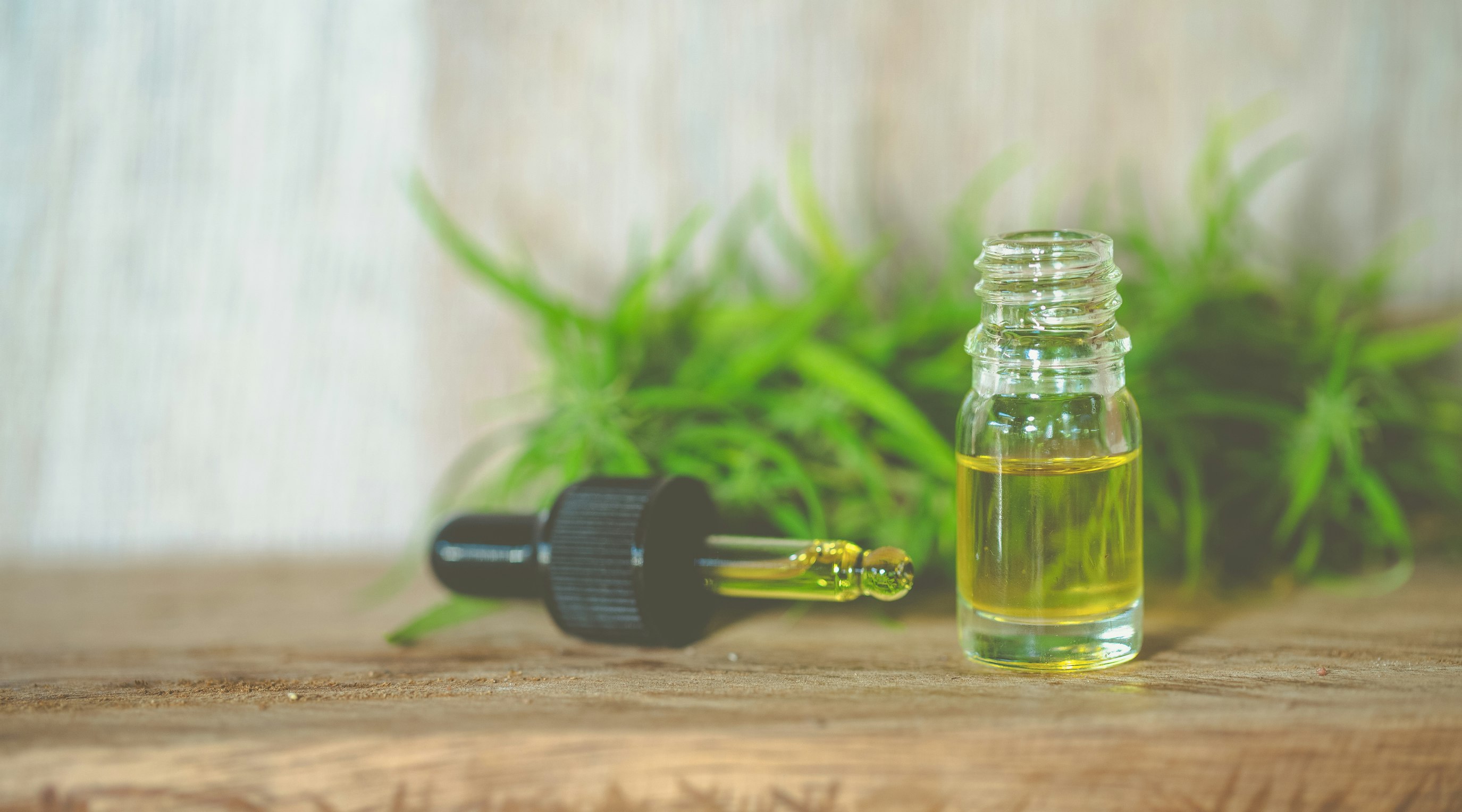Cannabis oil versus CBD oil: key differences to note
8 min read
Lydia Kariuki
Contents
But when it comes to the term “CBD oil”, most people consider this to be one of the very basics of the medical cannabis industry. So much so that, when cannabis oil is mentioned, CBD oil is what comes to mind for many. This is actually a misconception, as there is a clear difference between cannabis oil and CBD oil. This article aims at demystifying this confusion and draws clear boundaries between the two.
What is cannabis oil?
Cannabis oil refers to an oil that contains extracts derived from the whole cannabis plant. This includes cannabinoids (such as THC and CBD), terpenes, flavonoids and other nutrients. This is sometimes also referred to as full-spectrum cannabis oil.
What is CBD oil?
CBD oil refers to oil that contains CBD extracts derived from cannabis or hemp plants. CBD oil, unlike cannabis oil, does not always contain extra cannabinoids such as tetrahydrocannabinol (THC), but sometimes does. This only adds to the confusion. Full-spectrum CBD oil will contain up to 0.2% THC, broad-spectrum CBD oil contains the entire plant profile with the exception of THC, and CBD isolate oil contains only CBD.
Appearance, smell, and taste
The appearance, smell, and taste of cannabis oil and CBD oil are the same. Both are amber-coloured viscous fluids with a herbal or earthy taste. The smell of both will vary depending on the terpenes that are present, but generally, they will both have an earthy, sometimes sweet aroma. This makes it very easy to confuse the two.
Next up we will look at the 5 main differences between Cannabis Oil and CBD Oil
Source
The major difference between cannabis oil and CBD oil is their source. While cannabis oil is derived from the cannabis plant which contains significant levels of THC, CBD oil is most often derived from hemp plants which contain little to no THC.
As you may already know, hemp and cannabis are the same plant species; cannabis sativa L. The main difference between the two plant variations is the amount of THC produced. Hemp basically refers to cannabis plants that have minimal amounts of THC. Legal hemp in the UK should not exceed 0.2% THC.
Traditionally, hemp was cultivated for industrial use in the making of paper, clothing, ropes etc. Hemp seeds are also used as a source of fibre and nutrients. In more recent years, hemp has become a major source of CBD. Hemp plants produce negligible levels of THC, but thanks to modern breeding and cultivation methods, the concentration of CBD in certain hemp strains has risen from around 1% to 2% to as high as 30%. These strains are ideal for full and broad-spectrum CBD extraction.
Cannabis plants contain higher levels of certain cannabinoids, THC in particular, and are therefore used in THC cannabis oil extraction. The THC amount in cannabis oil will vary depending on the source strain of cannabis. However, most cannabis oils will contain sufficient amounts of THC to cause intoxication.
Remember, THC is responsible for the intoxicating effects associated with cannabis, but that does not mean that it also offers zero potential medical qualities. Research has shown that THC has many potential medicinal applications.
In summary, cannabis oil comes from the cannabis plant, while CBD oil most often comes from hemp plants.
Legality
The legal status of cannabis oil and CBD oil in the UK clear cut; while CBD oil is legal for general sale, cannabis oil must be prescribed by a registered physician.
Up until quite recently, hemp-derived CBD products are legal and can be easily purchased from online shops or convenience stores. Currently, CBD oils are sold as food supplements and get approval from the Food Safety Agency (FSA). However, new regulations requiring that all CBD products get approved as novel foods were passed in 2019. The process of getting novel food authorizations has been slow, but it is ongoing and should be concluded by the summer of 2024. Cannabis oil on the other hand is illegal for recreational use, as cannabis is classified as a class B drug. Patients may however access cannabis oil under the medical cannabis program.
Effects
The effects of both cannabis oil and CBD oil will depend on the bioactive molecules that are present. The main difference between the two occurs due to the presence or absence of THC.
Cannabis oil may contain high amounts of THC, which may cause intoxication. THC can alter your mental state by binding to CB1 receptors in the higher processing centres of the brain. These are the same receptors that anandamide (one of the body’s endocannabinoids, also referred to as the ‘bliss molecule’) binds to.
CBD oil, on the other hand, is totally non-intoxicating. CBD may improve focus and mood without altering one’s mental status.
With the differences discussed above in mind, it is easy to tell that the two versions of cannabis-derived oils do not have the same applications. Cannabis oil can be used recreationally, while CBD oil is a wellness product. Both have potential medicinal applications.
The potential benefits of cannabis oil include the following:
- Anti-inflammatory
- Analgesic
- Nausea and vomiting reduction
- Appetite enhancement
- Mood enhancement
The potential benefits of CBD oil include the following:
- Relaxation
- Improved sleep
- Relieves dry and scaly skin
- Anti-seizure properties
- Anti-anxiety properties
- Mood enhancement
Side effects
Both cannabis oil and CBD oil may cause some side effects. However, the side effects from both cannabis oil and CBD oil are likely to be mild.
Possible side effects of cannabis oil:
- Red eyes
- Dry mouth (cotton-mouth)
- Confusion
- Anxiety
- Euphoria
Possible side effects of CBD oil
- Drowsiness
- GI disturbances
- Low blood pressure
- Fatigue
Market segmentation
The markets for both cannabis oil and CBD oil have experienced significant growth and evolution in recent years, driven by increasing consumer demand and changing regulatory landscapes. Both products have gained popularity among patients seeking alternative pathways to wellness and natural therapeutic options. Medical research focusing on the potential therapeutic benefits of the two has also contributed to their growth.
That said, the market for CBD oil is mostly geared towards health and wellness, while that of cannabis oil is geared towards both medicinal and recreational applications. You will find CBD oil as an ingredient in wellness products that target improved sleep, relaxation, anxiety, de-stressing, skin health, and other similar categories.
As cannabis oil contains THC, you are more likely to find it promoted in recreational circles where the higher the THC, the more appealing the product may be. However, it is important to note that both THC and CBD have significant therapeutic potential and are therefore essential in medical cannabis.
As the markets have matured, companies have been able to focus on product innovations in terms of different formulations and delivery methods. Continuous research and innovation will continue to play a crucial role in shaping the market dynamics for both cannabis and CBD oil.
Why is it essential to understand the difference between cannabis oil and CBD oil?
Cannabis oil and CBD oil do not contain the same bioactive molecules. This means that the effects that they offer are different. What you will get from cannabis oil is not what you will get from CBD oil.
While cannabis oil may cause adverse mental effects, CBD oil is well tolerated by most people. Having such differences in mind will help you make an informed decision, as will consulting a registered physician that is qualified to prescribe medicinal cannabis.
Conclusion
In conclusion, cannabis oil and CBD oil are two distinct products that can be derived from the cannabis plant, each with its own unique characteristics and effects. Cannabis oil, also referred to as THC oil, is extracted from the whole cannabis plant and therefore contains significant levels of tetrahydrocannabinol (THC). THC is a psychoactive compound that is responsible for the "high" associated with cannabis consumption. While THC oil offers a wide range of potential therapeutic benefits, it also carries the risk of intoxication and other side effects.
On the other hand, CBD oil, or cannabidiol oil, is extracted primarily from hemp plants or cannabis plants with low levels of THC but higher amounts of CBD. In the UK, CBD products must be derived from EU-certified hemp that contains no more than 0.2% THC. CBD oil offers a wide range of potential therapeutic benefits. But unlike cannabis oil, CBD oil is not intoxicating and has little chance of negative side effects.
Another key difference between cannabis oil and CBD oil in the UK lies in their legal status. While cannabis oil with significant THC content is subject to legal restrictions, CBD oil derived from hemp plants is legal, provided it meets specific regulations regarding THC levels.
It is important to note that the therapeutic effects of cannabis oil and CBD oil can vary depending on the individual, the specific product, and the concentration of active compounds. As with any natural remedy, it is always advisable to consult with a healthcare professional before using either oil to gain a better understanding of potential interactions, dosage, and the most suitable product for your specific needs.
Releaf understands that medical cannabis can be life-changing for many people. That's why we offer tailored monthly packages based on your cannabis prescription, specialist consultations for medical cannabis, and a unique medical cannabis card for protection.
Share article
Did you like this article?
It is important to seek medical advice before starting any new treatments. The patient advisors at Releaf are available to provide expert advice and support. Alternatively, click here to book a consultation with one of our specialist doctors.
Elevate your wellness with medical cannabis
Get comprehensive care, convenience, and confidence with an all-in-one treatment plan.
Am I eligible?Authors
Lydia Kariuki, a medical nurse and journalist with a diploma in clinical research, specialises in translating complex cannabis research into accessible content, fostering public understanding and awareness.
Editorial Policy
All of our articles are written by medical cannabis experts, guided by strict sourcing guidelines, and reference peer-reviewed studies and credible academic research. Our expert clinical team and compliance specialists provide valuable insights to ensure accuracy when required. Learn more in our editorial policy.
Need more help?










